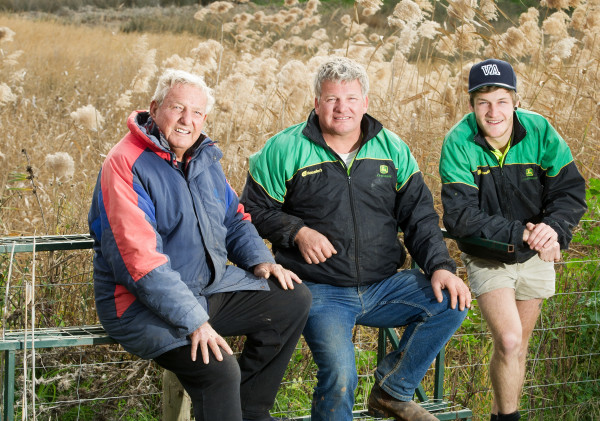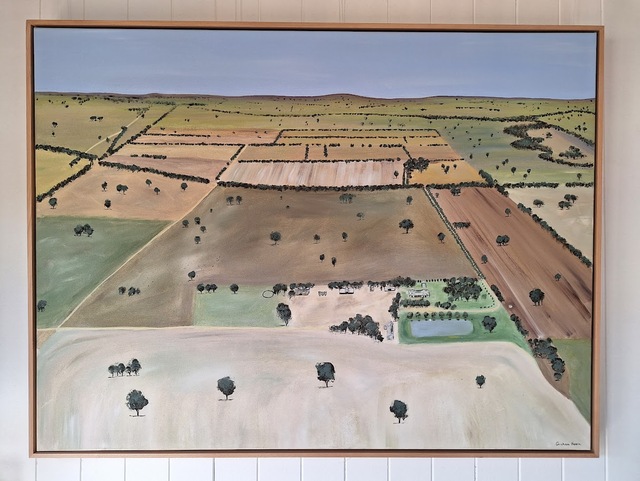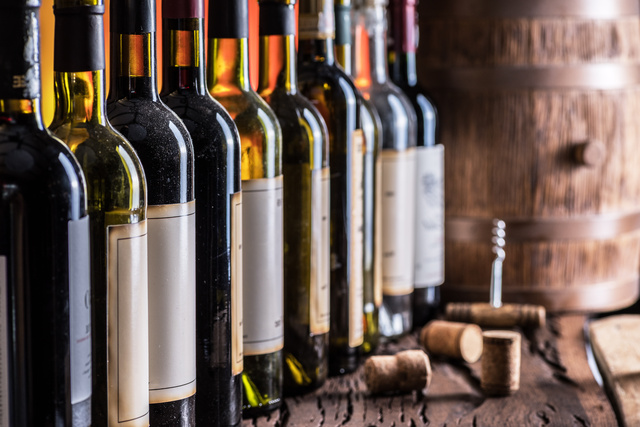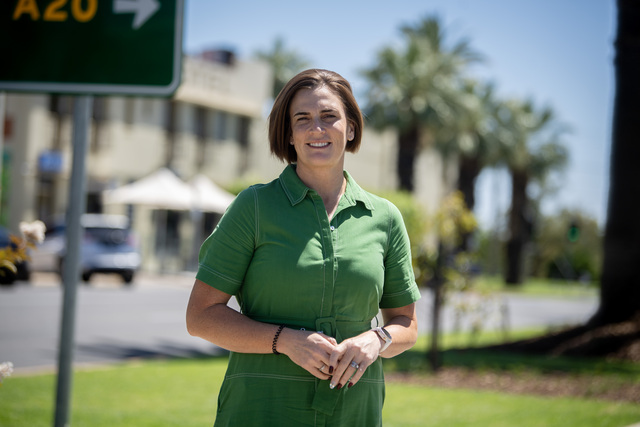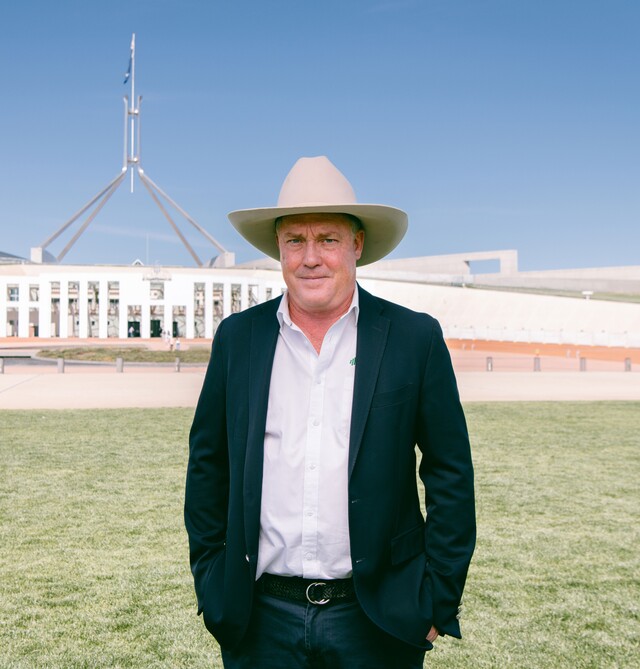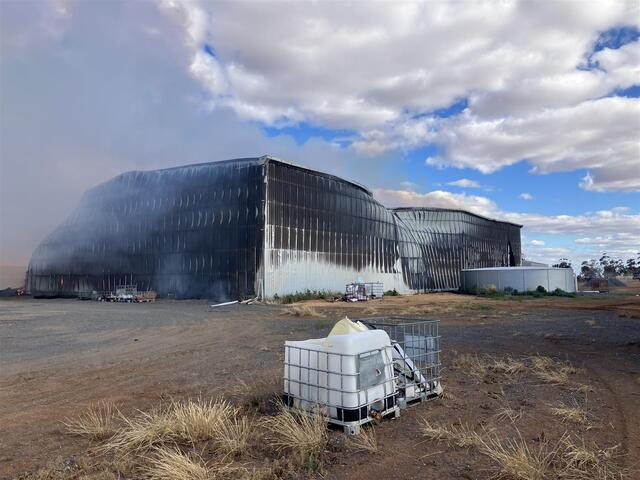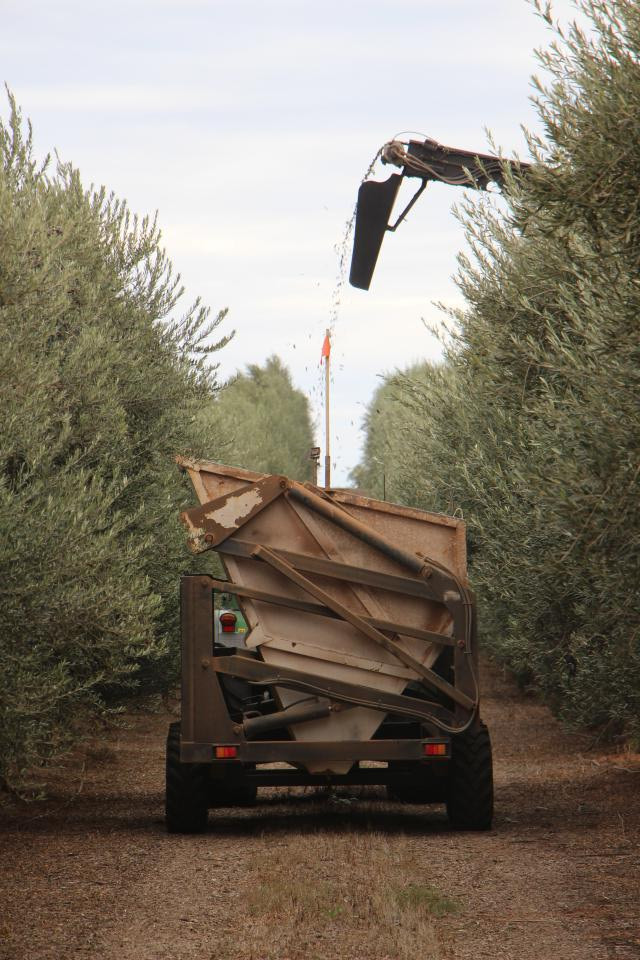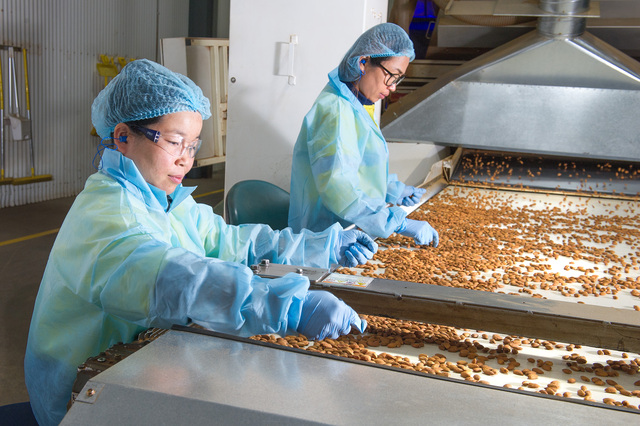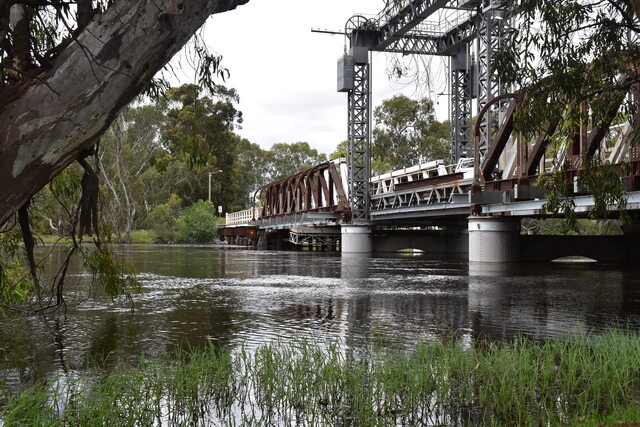“If I can’t export it, there’s no way I’m growing it.”
That’s where almost 100 years of Sunraysia farming has taken the Minter family – from agriculture to geo-politics.
And Darren Minter is adamant Australia has a lot to fix if its farmers are going to keep the country fed.
“Forget the rain or a drought, geo-politics is where most of the big decisions are made about small Australian farming enterprises, and unless Canberra gets a lot tougher, it’s only going to get worse,” Darren said.
“Look at China. We apparently upset them, so they start whacking tariffs on Australian primary produce – so why isn’t our government doing the same?
“Australia only represents about 2 per cent of world GDP so it’s never going to hurt China – but it sends a message.
“And if other, bigger markets, follow suit, then the Chinese might just sit up and take notice.”
They’re fighting words but Darren and the Minter family are fighting mad, having seen five generations of specialist asparagus growing shut down because it can no longer compete with Mexico’s massive level of production, which is underwritten by low wages and non-existent reams of government interference with everything from work safety to working conditions.
He said as all these things are law here, why aren’t people asking the question: why are Australian companies allowed to buy from other countries that don’t have these laws?
But don’t think, for an instant, that is what he’s looking for in 21st century Australia. All Darren is looking for is a system that actually works, and is fair and equitable.
He said while the family business – Minter Magic – has always run a mix of production to drought and market-proof itself, every turn it makes these days runs into an unfathomable mess of red tape.
“We are happy to pay a fair day’s wage for a fair day’s work,” he said. “But just take this for example – the end of September is peak season here and we have to pay penalty rates because Victoria has decided Grand Final eve should be a public holiday.
“So our choice (by law) is giving everyone Friday off because that is the public holiday and costs double time, which I can’t afford, and work them on Saturday – we save money, and they don’t get to watch the footy.
“But that’s not the whole problem, lots of things have contributed to the decline – overseas producers we simply can’t compete with, the dollar making everything we need to import much more expensive, wages, now the lack of people to do the work, the bureaucracy – it goes on and on.
“Just keeping up with the new labour laws and the speed with which they are implemented is out of kilter – in agriculture it takes years to get your crop into production and responding quickly is not easy – but as I said, workers’ rights and wages aren’t the issue. It’s Fair Work failing to do its job. All the new laws come through it, and if an employer and employee have an issue, Fair Work should have it sorted within 72 hours, not the current years later.
“Look at how many people work in agriculture along the Murray, but our nearest Fair Work offices are in Warrnambool, Melbourne and Sale. It’s ridiculous.
“Plus all government decisions on water, power and compliance costs are all costs put against my business – and there is nothing I can do about it.”
Well, as it turns out, there are a few things Darren can do to “cut the c…” out of the system.
First and foremost, he has got out of the labour intensive, low-return asparagus market, and is going into almonds and citrus big time.
That will involve 25,800 more almond trees and 6000 more citrus, being spread across the family properties that for so long grew asparagus. But Darren said it means, particularly with almonds, employing fewer people, and that means fewer bureaucratic burdens.
All he has to pay for is water, power, and fertiliser – but even that’s a challenge. Lower Murray Water boosted its charges 5.1 per cent for the new season, power prices are soaring, and fertiliser is going the same way because of our soft dollar.
“I’ll admit I nearly walked away, starting again at 55 is a big ask, and I asked myself on more than one occasion if it really would all be worth it,” Darren said.
“But Anne-Marie and I have a son at home who wants to be a farmer, and five generations of hard work put into the land in this region and as part of this community is a big investment, not just financially but emotionally as well.
“But farming aside, I do sit here and marvel at the way all the producers up here are slugged with the same costs as people in the city, where the Green movement seems to have so much influence and power.
“On our farms we grow things that produce oxygen, but get no reward from people sitting in offices in Melbourne where they run airconditioners or heaters all day, and then they tell us we are responsible for all sorts of environmental problems – seriously?
“If they want to make these calls in the cities then we need to sort out carbon credits in a hurry, find out where they’re going – and who pays.
“I reckon my trees are doing more for the environment than an aluminium smelter, but I have to pay the same prices as them.”
Current challenges and changes aside, Darren Minter is steeped in the story of Sunraysia farming, stretching back to his migrant English great grandfather Frank Minter and continued in son Garry.
Darren said Frank fell for the Mildura region, which reminded him of his home county of Kent, and settled here, surviving the Great Depression using a natural sand drift for underground drainage on his property, which was producing dried fruit and asparagus.
Frank’s son Norm took over the farm and registered the Murrayland brand name in the early ’60s. But when Darren’s grandfather gave fruit juice companies permission to use the name as well, Darren’s father Geoff and his mother Betty, who were involved with the farm, said it was time for a rebrand.
“The agent said you’ve got to have your name in your business title, then people remember who you are,” Darren recalled.
“So in 1980 we went through Minterrific, Minter Gold, and we arrived at Minter Magic – and that’s the one that stuck.
“Mind you, the Minters have an interesting history with names..
“Apparently I was named after the character from Bewitched, which is ironic given mum initially was not happy with Anne-Marie and me naming our son Garry (middle name Arthur).
“She looked at me and said: ‘How could you name a kid Garry Arthur? Poor kid’.
“So I rattled off all the Garrys who have influenced my life.
“My mechanic was Garry, my accountant was Garry, even one of my biggest farming mentors was Garry, and my favourite uncle was Garry.
“Then my mum’s father’s name was Arthur and Anne-Marie’s grandfather’s name was Arthur,” he told her.
“And once I’d said all that she walked off – with a tear in her eye.”
The signature product behind Minter Magic has always been its asparagus, with founder Frank first planting the Connivers Colossal variety in 1927.
In 1948, Bob Chaffey, son of the founder of the Sunraysia itself, gave the Minters their first Mary Washington 500 variety seeds which were a perfect fit for the Sunraysia climate, and resulted in high yields.
In 1968, 15 acres of a Minter variety (72 and 66) were planted at Iraak, and export shipping started in 1972 with the first export shipments to the UK. This was followed by the first four shipments to Japan in 1975.
In 1985 the Victorian Department of Agriculture introduced Geoff Minter to the variety known as Ida Lea, which is now planted extensively throughout Sunraysia.
At the start of his own farming career in 1985, Darren was named top fruit grower for the state and Apprentice of the Year for the Sunraysia region and then for Victoria.
“Farming is in my blood,” Darren said. “I love to farm and see it as my life. We live and work together as a family and are committed to producing quality products.
“Our reputation remains our credibility. We have been supplying quality produce for decades and our customers know that.
“We ensure our farm practices are up-to-date and the quality assurance program is accurately followed, not just on farm but in the packing shed.
“But the past three years of farming haven’t been pleasant. The decision to redevelop or sell has been the hardest I have made in my life.”
In 2009 the Minter family, with Darren at the helm, showed its fighting qualities after the business had hit a new low, ravaged by three years of drought.
Instead of hanging up the gloves and calling it a day, Darren bit the proverbial bullet and expanded – snapping up 300 acres of neighbouring country.
“Everyone was selling land, and there I was buying it,” he said. “Minters have always operated outside the square; we’ve never farmed conventionally.
“I had 250 acres already, I was comfortable, but to go ahead and double it, it was a big call.
“It was the best thing we ever did.”
However, the move didn’t pay instant dividends.
“It was tough, citrus went from $180 a bin, to $40 a bin,” he recalled.
That would be enough to have steam rising from your ears, but Darren saves his frustration for bigger fish. Especially Australia’s allies, who he believes should also be Australia’s best trading partners.
He also believes the domestic market has forced too many smaller players out of the food production industry, as alliances with, and demands on, major corporate producers leave Australia’s food security at risk in the event of just a few of them changing direction or leaving the industry.
“Yes, we might have problems with China right now, but our allies, in America, the UK and Europe, screw us more than China and have been doing it for a long time,” Darren said.
“It is countries such as Japan and Singapore that are really good to do business with, who are transparent and easy to work with – far and away.”
Which brings him right back to geo-politics and the hard road ahead, not just for Minter Magic but for all agriculture.
And his new almond trees are three years away from any return – and six to seven from full production; with the citrus a decade away from delivering to the max.

